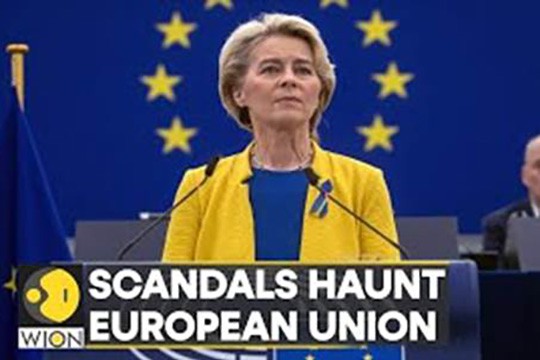Transparency experts have urged MEPs to push for tougher internal reforms in the wake of the Qatargate scandal, noting that Qatar is not the only state to practice ‘chequebook diplomacy’(!).
Speaking at a hearing of the European Parliament’s Special Committee on foreign interference on Thursday (26 January), Christian Chesnot, a Radio France journalist and a co-author of the ‘Qatar Papers’, said that he was not surprised by the allegations, pointing to how a number of French diplomats and politicians had been exposed as asking for cash and gifts from Qatar in the 2010s.
Chesnot added that other countries, including Morocco, also practised forms of ‘chequebook diplomacy’.
In the wake of the Qatargate corruption scandal, which has engulfed the Parliament and led to the arrest of a handful of MEPs, including former Parliament Vice-President Eva Kaili, a set of reforms were proposed by Parliament President Roberta Metsola earlier this month to tighten controls on lobbying within the Parliament.
These include a ban on MEPs so-called ‘Friendship groups’, which link lawmakers to third countries.
They also include plans to introduce regular checks on all lobbyists in the Transparency Register (requesting them to verify links with third countries), to publish all meetings with third parties related to a Parliament report or a resolution, and declare any overseas trips.
Nick Aiossa, Deputy Director of Transparency International EU, described the proposals drafted by Parliament President Roberta Metsola as “a step in the right direction, but they won’t go far enough”, adding that the institution needed “some tough love”.
He called for the introduction of mandatory registration for third-country representatives and pointed out that the Metsola reform proposals would not provide whistleblower protection for Parliament officials and MEP staffers.
Although MEPs adopted the EU’s directive on whistleblower protection in 2019, the law’s protections do not apply to EU staff, who are instead covered by internal staff regulations.
The scandal has also prompted a flurry of overdue financial declarations by MEPs, including from Metsola herself. This, coupled with the lack of a sanctions regime for breaches of the rules on financial declarations, pointed to a “culture of impunity that has developed over the past decade.”
“None of the staff regulations for the EU institutions match the protections in the directive, and the European Parliament’s are the worst. The assistants and staff in the European Parliament have some of the lowest levels of protection across the Union,” said Aiossa, adding that this lack of protection could have contributed to the scandal going unreported for so long.
read more in our Telegram-channel https://t.me/The_International_Affairs

 12:05 13.02.2023 •
12:05 13.02.2023 •























